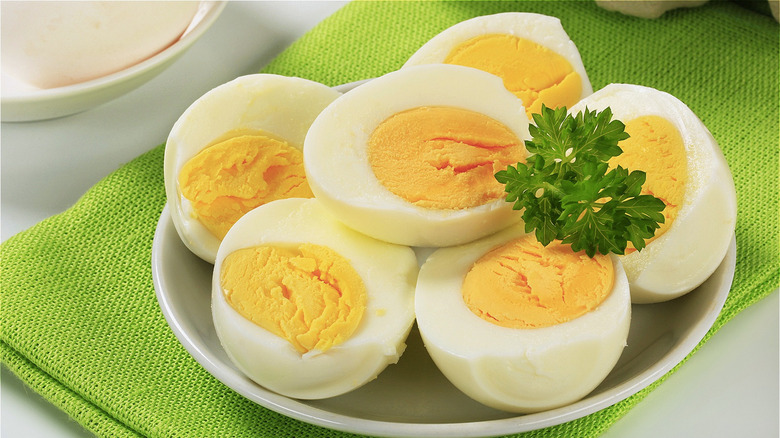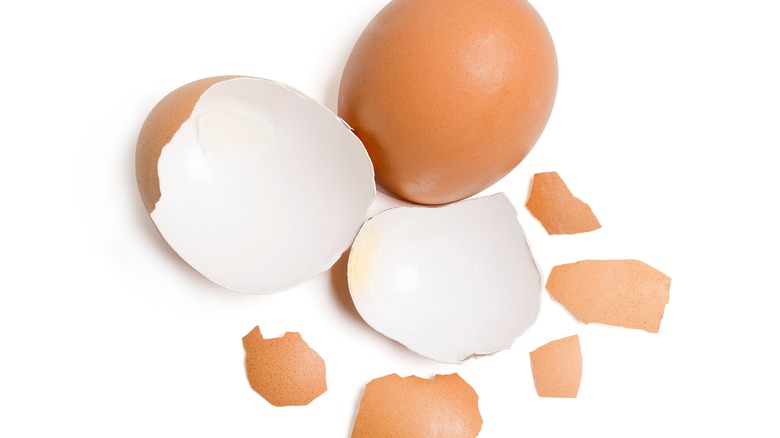You Should Start Making Hard-Boiled Eggs In A Loaf Pan
Revamp your hard-boiled egg game by adopting an unexpected tool: a loaf pan. This unconventional approach offers a fresh perspective on your egg-making routine and gets rid of the dreaded step of peeling the shell. By cooking your eggs in a loaf pan, you minimize the risk of overcooking or unevenly cooked eggs. Essentially, it makes a convenient and easy way to achieve the desired texture every time you make hard-boiled eggs.
Just grab your favorite loaf pan and spray it with some nonstick pan spray. Once it's greased up, crack your eggs into it. Make sure not to stir or shake them around too much, or they could become scrambled in the process. Insert your loaf pan into another pan and fill it with a water bath. Then pop them into your oven at 350°F for about 30 minutes. The yolks should come out firm, tucked behind the tender egg whites, perfect for eating them straight or adding to your favorite recipes.
This loaf pan hack creates an even distribution of heat that can lead to more consistent results while cooking. This method is particularly helpful when preparing a larger batch of eggs, as it ensures each one is cooked to perfection. Also, this works in any size pan; just make sure it fits in your water bath before you start cracking. Say goodbye to the frustration of peeling and hello to hassle-free hard-boiled eggs!
The reason why hard-boiled eggs are hard to peel
After finding that egg-tastic hack you might be wondering why eggs are so hard to peel in the first place. The challenge of peeling hard-boiled eggs often stems from a combination of factors related to eggshell adhesion and egg white pH. Fresher eggs tend to have a lower pH, causing the egg whites to adhere more tightly to the inner membrane and the shell. As eggs age, the pH rises slightly, making them easier to peel, according to the USDA. So we recommend reaching for the older eggs for better peeling results.
Moreover, the rapid cooling of eggs can also contract the egg whites, creating a small gap between the egg and the shell, facilitating peeling. The presence of a thin membrane between the egg white and the shell can affect the ease of peeling. However, there are several alternative methods you can explore to make the peeling of eggs easier or even avoid the peeling process altogether. Try adding a teaspoon of baking soda to the boiling water. This raises the pH level of the egg whites, making them less likely to adhere to the shell and resulting in smoother peeling.
As for those trickier hard-to-peel eggs, some individuals find success by gently rolling boiled eggs on a hard surface to crack the shell, then peeling the eggs under running water. Whether you are prepping your eggs for hard-boiling or aiming for a jammier result, remember not to crack under the pressure.

